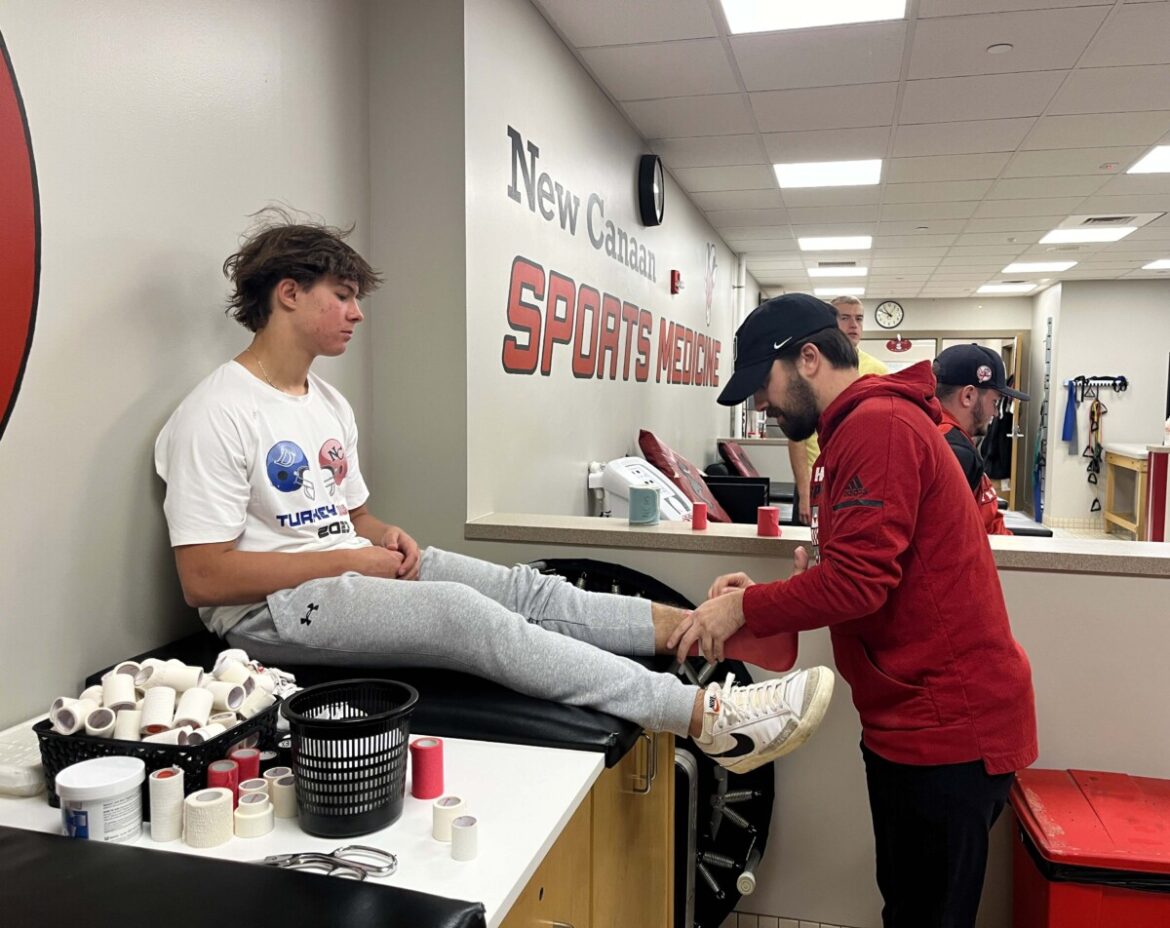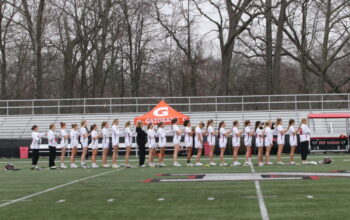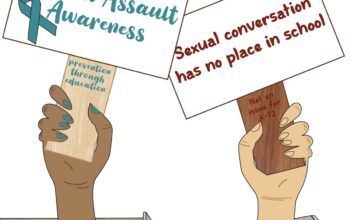By Olivia Carofano
@OCarofano32144
In a town centered around athletic accomplishments, this school has produced some of the state’s best athletes. Whether it’s winning FCIACs or training for the postseason, students are constantly working to stay in shape and improve their skills. But this can’t be done alone: behind the scenes, athletic trainers keep a watchful eye on all student athletes that need help with any injuries or pain. Whether they are on the sidelines surveying games or in the training room working with students, trainers are an essential part of the sports community.
Trainer Cory Dybas works hard to ensure organization before tending to athletes. “We come to school around 1:30 and come in and do paperwork regarding accidents,” Mr. Dybas said. “Once everyone leaves school we start treatment, evaluation and pre-practice preparation.”
Once organized, trainers can begin working with athletes before or during games and practice. “Any participating athletes that need heat, to stretch, to be wrapped with tape or to be braced will be taken care of so they can play to their fullest potential,” Mr. Dybas said. “Then, the athletes who have already been evaluated will undergo ultrasound, stem, or physical therapy exercises to help with recovery.”
By working with students constantly, trainers form connections and trust with athletes they work with .“ They’re easy to talk to and easy to communicate with” senior Ben Reagan said. “They’re honest with you. They’re there to help and guide you through anything you might be experiencing. It’s a good connection and lots of trust.”
Students feel comfortable with the trainers and trust their advice to get them back on the fields and to their fullest potential as soon as possible. “Without athletic trainers, a lot of injuries would go unmanaged and over the course of a year. Our main goal is to identify athletes who shouldn’t play and risk making their injury worse, rehabilitating them and getting them back to the top level of health that we can get them to at that time,” Mr. Dybas said.
Physical assessments allow trainers to evaluate the injuries and create a strict recovery plan. “The first thing we try to do with them is empathize especially if you know they’re not going be able to go back into practice that week or if it is something that’s really bad.” Mr. Dybas said. “I try to let them know that I’ve been there before and all athletes have to go through this. After that, we build a step by step process to recovery and make goals that the athlete is going to reach by the end of the rehabilitation process.”
Junior Emma Row has experienced multiple injuries in her athletic career and has been accompanied by trainers Shayna and Cory in the rehabilitation process. “When I hurt my ankle I wanted to get back the next day, which was not possible since I couldn’t walk.” Emma said. “Shayna mapped out the recovery process and when I would be ready to start playing again. Before going back to practice I would run on the elliptical and later eased into a non-contact practice.”
Trainers are on the sidelines during games, making sure that any injury that occurs is treated properly and quickly. “We’re first responders,” Dybas said. The main reason we’re at games is in case of a catastrophic event, but we also help with the management of acute injuries.”
As well as attending to students, trainers are also work and serve as mentors for interns from Sacred Heart University. “They’re learning how to be athletic trainers,” Mr. Dybas said. “They’re currently masters students at Sacred Heart University and studying in athletic training. They’re learning from Shayna and I, so they’ll do all the tasks but just under supervision. They mostly help with taping, wrapping, bracing, and getting initial evaluations out of the way. So while we are really busy doing other stuff, interns Sarah and Vittoria start getting subjective histories on why kids are asking for evaluations.” Mr. Dybas said.
Students have also had many positive experiences with interns in the process of their recovery. “The interns are really great,” Ben said. “They’re great for taping, and with helping rehab, and I know they help Corey and Shayna a lot by keeping things flowing in the training room.”
Athletic trainers are a big part of the school’s community because of the time and effort they put into their work. “Shayna and Corey are very knowledgeable and nobody else in the FCIAC has the same kind of training access and support our school does”, Ben Reagan said.




